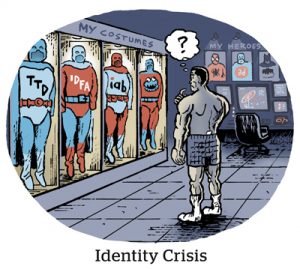 Google soon expects to join the IAB Europe’s Transparency and Consent Framework, which transmits consent across the ad tech ecosystem to serve data-driven ads under GDPR.
Google soon expects to join the IAB Europe’s Transparency and Consent Framework, which transmits consent across the ad tech ecosystem to serve data-driven ads under GDPR.
Google said it will join once it has resolved technical and policy details so parts of its ad tech can operate with the framework.
“We absolutely want to be a part of the IAB framework. We plan to register,” Scott Spencer, Google’s director of product management, told AdExchanger.
There are still important, unknown details – like how long before Google resolves its discrepancies with the IAB, whether Google will integrate its DoubleClick Bid Manager DSP but not its DoubleClick for Publishers (DFP) supply and whether Google will join only as a vendor or incorporate its consent opt-in service, Funding Choices, as an IAB-registered consent management platform.
Regardless, adding Google to the Transparency and Consent Framework roster is a critical next step for the effort, which otherwise is isolated from Google’s reserves of inventory and demand.
Google has partially collaborated with the ad tech industry on GDPR compliance. The company is a member of the Transparency and Consent Framework steering committee. It also connected its privacy-centric first-party data and reporting service, Ads Data Hub, with vendors like Adform and Sizmek.
But some in the industry have been concerned Google is using GDPR as cover to gain competitive benefits, such as by restricting the DoubleClick ad ID to Google’s platform and tamping down the number of outside vendors DFP publishers can functionally employ for data-driven advertising. If Google kept its tech stack separate from the IAB Europe’s framework, it would deliver another blow to ad tech competition.
Many of AppNexus’ publisher clients are testing the framework, for instance, but “aren’t publicly announcing their support given broad sensitivity and uncertainty around GDPR and Google’s hesitation to support the framework,” said Julia Shullman, AppNexus’ deputy general counsel and chair of the IAB Europe Consent and Transparency steering group.
Google’s hesitancy to join the Consent and Transparency Framework has hurt the industry, whether fair or not, said John Potter, CTO of the B2B media company Purch. Purch is one of a handful of publishers, including Axel Springer, Schibsted Media and BuzzFeed, to back the framework.
Many US publishers, especially smaller publishers without meaningful in-house compliance investments, are watching Google as a kind of GDPR weather vane, he said, and will join the IAB Europe framework after Google signals it passed the online ad giant’s own internal audit.















